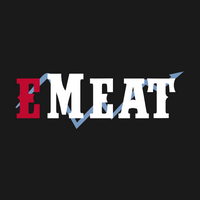
What will the global meat industry look like in 2031? Part 2: Pigmeat
This is part 2 of a series of 5 Blogs.
2022-31 Projections for Meat Consumption, Production, and Trade by Country and Type of Meat
Using the OECD-FAO Agricultural Outlook’s most updated database (edition 2022), the EMEAT Market Analysis Team has prepared a detailed analysis by type of meat and country for key indicators such as total and per capital consumption, production, and trade (imports/exports).
Using the Easy Analytics approach that characterizes EMEAT, we have been able to condense large amounts of data into a few easy-to-understand charts.
Scope
This analysis includes projections for the years 2022-31 for Pigmeat/Pork consumption, production, and trade (import/export).
The analysis is done by country, for the 34 countries included in the OECD-FAO Agricultural Outlook 2022-2031 database.
Analysis for Pigmeat/Pork
Of the total expected growth in consumption (+6m tonnes), the countries with the largest positive contributions are China (+3.2m tonnes), the United States (+860K tonnes), and the Philippines (+750K tonnes). The European Union is the only market with a large expected consumption reduction (-340K tonnes).

Countries with large projected changes in per capita consumption include the Philippines (+8 Lbs), the Russian Federation (+4 Lbs), Korea (+3.2 Lbs), China (+3.1 Lbs), Colombia (+2.90 Lbs), Canada (-1.6 Lbs), and Switzerland (-2.9 Lbs).

On the trade side, the country with the largest expected increase in imports is Mexico (+236K tonnes), and the ones with the largest projected reductions in imports are China (-1.8m tonnes) and the Philippines (-312K tonnes).

Increases in production are driven by China (+5m tonnes), the United States (+1m tonnes), and the Philippines (+1m tonnes).

Prepared by the EMEAT Market Analysis Team
contact@emeat.io
Sources
OECD-FAO Agricultural Outlook 2022-2031 database
Database published: July 2022
https://www.oecd-ilibrary.org/agriculture-and-food/data/oecd-agriculture-statistics_agr-data-en
GENERAL INFORMATION (from the OECD-FAO Agricultural Outlook 2022-2031 database information section):
“The Agricultural Outlook has been prepared as a joint report by the Organisation for Economic Co-operation and Development (OECD) and the Food and Agriculture Organization (FAO) of the United Nations. The report provides a ten year forward looking assessment of trends and prospects in the major temperate-zone agricultural commodity markets of biofuels, cereals, oilseeds and oilseed products, sugar, meat, fish and sea food, dairy products, cotton, roots and tubers and pulses. It is published annually, in the middle of the second quarter, as part of a continuing effort to promote informed discussion of emerging market and policy issues. The data used to develop the projections underlying the assessment are those available as of January 2021.
The projections and assessments provided in the report are the result of close co-operation between the OECD and FAO Secretariats and national experts with a jointly developed modelling system, based on the AGLINK-COSIMO model, used to facilitate consistency in the projections. The data series for the projections are drawn from OECD and FAO databases. For the most part information in these databases has been taken from national statistical sources. For further details on particular series, enquiries should be directed to the OECD and FAO Secretariats-
Generally for the period 1990-2031, the following countries/regions are covered: Canada, United States, European Union (Refers to all current European Union member States except the United Kingdom), United Kingdom, Norway, Switzerland, Russia, Ukraine, Australia, New Zealand, Japan, South Africa, Egypt, Ethiopia, Nigeria, Argentina, Brazil, Chile, Colombia, Mexico, Paraguay, China, Kazakhstan, India, Indonesia, Iran, Korea, Malaysia, Pakistan, Philippines, Saudi Arabia, Thailand, Türkiye, Viet Nam as well as a number of aggregate regions: Asia, Africa, Europe, Latin America, North America, Oceania, OECD, BRICS, Developing, Developed and World totals.”
Pork
Questions about this Article?:

The EMEAT Team
Sales, Purchasing, RiskManagement
We simplify data analysis and interpretation with user-friendly, affordable, and customizable tools. Our market data, analytics, and insights empower everyone in the North American meat industry, from ranchers, feedlot operators, and meat packers to retailers and food service companies.
Sign Up and enjoy full access to EMEAT
Complete market data, advanced analytics, forecasting and risk management tools at your fingertips for 14 days. Don't miss the opportunity to explore EMEAT's full potential!
no payment information required

Copyright © 2021-2025. All rights reserved
This website stores cookies on your computer. These cookies are used to collect information about how you interact with our website and allow us to remember you. We use this information in order to improve and customize your browsing experience and for analytics and metrics about our visitors on this website. To find out more about the cookies we use, see ourPrivacy Policy.